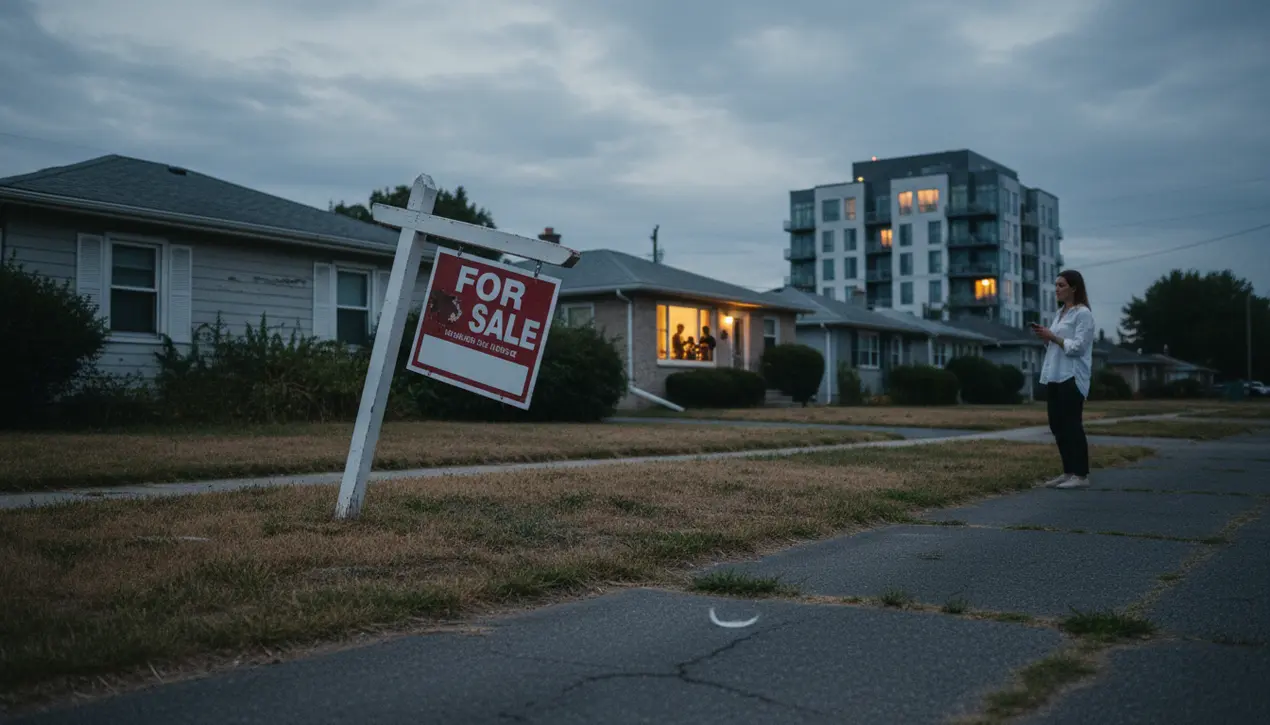
Otherreal estateHousing Market Trends
Why owning a house is overrated.
ET
Ethan Brown
3 hours ago7 min read1 comments
The gleaming 'For Sale' sign planted in a manicured lawn has long been the universal symbol of making it, the finish line of the American Dream. We're taught from a young age that the path to financial maturity and security runs directly through a 30-year mortgage, a notion so deeply ingrained that a staggering 70 percent of Americans see homeownership as non-negotiable for a successful life.But what if this cornerstone of our collective financial plan is, for many, a fundamentally flawed investment? Jerusalem Demsas, editor-in-chief of The Argument, offers a provocative counter-narrative: 'Homeownership is overrated. ' As a passionate renter herself, she champions the often-overlooked joys and profound financial logic of leasing one's shelter.She loves the mobility it affords, the freedom to pick up and move for a new job or a new city without the anchor of a massive illiquid asset. She revels in the simplicity of passing the buck on a broken water heater or a leaky roof directly to a landlord, transforming potential financial disasters into a simple phone call.This isn't just a lifestyle preference; it's a calculated financial strategy. The conventional wisdom touts two primary benefits of buying: the forced savings mechanism of building equity instead of 'throwing money away' on rent, and the promise of a stellar return on investment.Demsas systematically dismantles both. While it's true that mortgage payments build equity, the return on that investment is far from guaranteed.For it to pay off, a homeowner must navigate a minefield of life's uncertainties—job loss, medical emergencies, family needs—without being forced to sell at an inopportune time, potentially locking in losses or sacrificing a low-interest-rate mortgage. Furthermore, the true cost of homeownership often far exceeds the sticker price of a mortgage.Property taxes, insurance, maintenance, and unexpected repairs can make the monthly outflow significantly higher than an equivalent rental, draining capital that could otherwise be deployed into more reliable, diversified, and historically higher-yielding assets like low-cost index funds. The stock market doesn't call you on a Saturday to report a flooded basement.So how did we arrive at this cultural and financial dogma? The history is deeply political and psychological. A potent, conservative ideology took root in the early 20th century, positing that homeowners were stable, committed citizens while renters were transient, unreliable, and less invested in their communities.This anti-renter bias became legally and socially codified, weaving the white picket fence into the very fabric of American identity. Yet, this purported community connection is often a myth.Demsas argues that renting frequently allows people to live in vibrant, established neighborhoods they could never afford to buy into, placing them closer to friends, family, and workplaces. The act of buying a first home often forces a compromise on location, pushing buyers to the exurbs and severing the very community ties ownership is supposed to foster.On an emotional level, the dream is hard to shake because homeownership has become a proxy for freedom itself—the freedom to paint your walls, to plant a garden, to be your own boss. But Demsas reframes this concept, arguing that true economic freedom isn't about the deed to a house; it's about having resilient finances, access to good jobs, and a safety net that allows you to weather life's storms.For many, a hefty mortgage and a single, undiversified asset represents the opposite of freedom—it's a chain. The path to genuine security isn't a one-size-fits-all sprint to homeownership, but a thoughtful, personalized journey toward building a flexible and robust financial life, whether that means renting in a prime location or investing your down payment in a globally diversified portfolio.
#homeownership
#renting
#housing market
#personal finance
#American dream
#featured
Stay Informed. Act Smarter.
Get weekly highlights, major headlines, and expert insights — then put your knowledge to work in our live prediction markets.
Related News
Comments
Loading comments...
© 2025 Outpoll Service LTD. All rights reserved.